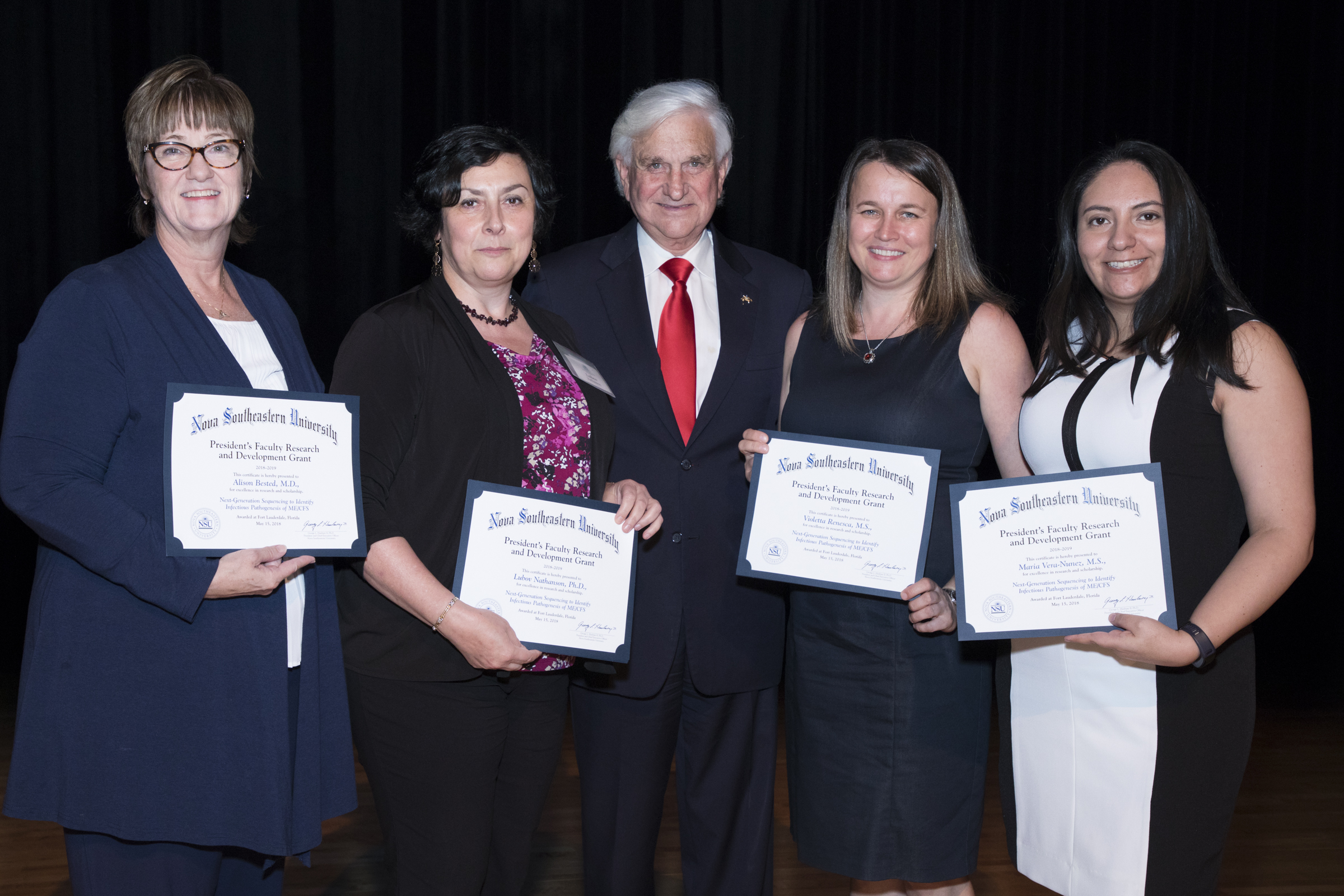Next-generation Sequencing to Identify Infectious Pathogenesis of ME/CFS.
Grant Winners
- Violetta Renesca, M.S. – College of Arts, Humanities and Social Sciences
- Irina Rozenfeld, M.S. – Dr. Kiran C. Patel College of Osteopathic Medicine
- Maria Vera Nunez, M.S. – Dr. Kiran C. Patel College of Osteopathic Medicine
- Lubov Nathanson, Ph.D. – Dr. Kiran C. Patel College of Osteopathic Medicine
- Alison Bested, M.D. – Dr. Kiran C. Patel College of Osteopathic Medicine
- Nishil Patel, M.S. – Dr. Kiran C. Patel College of Osteopathic Medicine
- Marc Pilarski, B.S. – Dr. Kiran C. Patel College of Osteopathic Medicine
Dean
- Elaine Wallace, D.O., M.S., M.S., M.S. – Dr. Kiran C. Patel College of Osteopathic Medicine
Abstract

Myalgic encephalomyelitis/chronic fatigue syndrome (ME/CFS) is a disabling disorder, in which symptoms range from extreme fatigue and difficulty concentrating to headaches and muscle pain. The Institute of Medicine (IOM) estimates that between 836,000 to 2.5 million people in the United States are affected by the illness, and the annual economic cost of this disease is about 24 billion (IOM,2015). The etiology of ME/CFS has not been established. The clinical presentation, the course of illness, immune markers, and histopathology suggest an infectious cause of the illness, however, no specific pathogen has been identified. The current methods of pathogen detection have many limitations, and next-generation RNA sequencing has a potential to overcome challenges of traditional diagnostics, improve detection of pathogens (viral, bacterial, parasitic, or fungal) mediators of the disease. We propose the use of metagenomic testing to analyze the RNA from peripheral blood mononuclear cell (PBMC) of 10 patients with post-infectious onset of ME/CFS and compare them to another subgroup of patient with ME/CFS and healthy controls to explore associations with immune, neuroendocrine and other clinical markers. We will also analyze the results in the contest of symptom severity and quality of life. The RNA sequencing will reveal the expression of every transcript present in the cells, and the results will be confirmed by Nanostring technology. We will compare the expression of known and novel human transcripts and splicing events as well as pathogens between ME/CFS patients from this study with data from healthy sedentary controls and other subgroup of patients with ME/CFS from a previous NIH study by Dr. Nathanson.
The Identification of infectious agents associated with the onset and continuation of symptoms in ME/CFS could lead to further clinical trials to identify subgroups of ME/CFS with an infectious etiology and prompt improvements in clinical management allowing early diagnosis and personalized treatment of these patients. It will also validate the clinical utility of RNA sequencing as a non-invasive diagnostic indicator of the disease.